- Forum
- General Discussion | Introductions | Off Topic Forum
- Photography General Discussion
- At what point is photography not photography?
At what point is photography not photography?
-
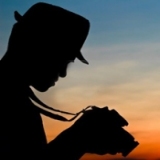 Topic Author
Topic Author
- Eliffman
- Photography Hooked
-
- Nikon D700
- Followers: 141
- Posts: 532
-
Points:
4142
Post #713507
Seems like this will change photography for ever. But is this still photography when you change the sky, which changes all the foreground colors and overall tone of an image?
-

- Nikon Shooter
- Oh Wise One
-
- 3S 3X 810 850
- Followers: 197
- Posts: 13795
-
Points:
88932
Post #713508
I make a distinction between photography and imagery, and an
other one between technique and artistic intent, and important
considerations between documentation, illustration and inspiration.
Coming from all the limitations of film, this is the point where it is
photography. Switching to digital will change the way pictures are
made but is the goal the same when the tools are others?
The actual and future profusions of approaches, techniques, and
tools will certainly bring new definitions to the art forms.
Light is free… capturing it is not!
-
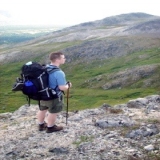
- Glen Mosley
- Snapobsessed
- Followers: 112
- Posts: 329
-
Points:
4669
Post #713520
-

- fmw
- Newbie
- Followers: 12
-
Points:
12122
Post #713528
Ansel Adams, the famous nature photographer did good photography. It was his darkroom work, however, that made those images as impactful as they are. He was a true genius in the darkroom. I think the same thing holds true for digital imaging. Whatever digital tools are available are good as long as they are used well. Much less skill is involved than what we or Ansel Adams used to do in the darkroom. For that reason digital editing tools are often used badly or just excessively. Great images always have an interesting subject and that is the photography part.
-
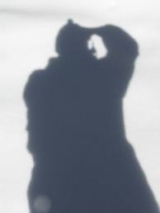
- Kelly Lambert
- Snapobsessed
-
- Nikon D700
- Followers: 149
- Posts: 297
-
Points:
3619
Post #713535
Nikon D700: 50mm, 14-24mm, 85mm, 105mm 70-200mm, 150-500mm (Sigma), SB-900
-
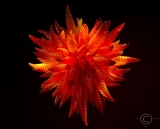
- John Landolfi
- Super User
-
- Nikon D3S, D7100, Sony RX10, Canon G11, F4s, F2sb, RetinaflexIV etc, etc
- Followers: 1205
- Posts: 21605
-
Points:
40394
Post #713536
fmw wrote: When you have composed an image, fired the shutter and captured the subject on your sensor, you have engaged in photography. Anything else you do with the image is something else. In the old days, the darkroom was a place where the image could be massaged into a final print. I never viewed that as photography but rather image editing, creative though it might be. Today, our darkroom is a computer and the editing software handles the massaging. That too is image editing in exactly the same sense. The resulting image is a combination of photography and the massaging of the image regardless of the method used.
Ansel Adams, the famous nature photographer did good photography. It was his darkroom work, however, that made those images as impactful as they are. He was a true genius in the darkroom. I think the same thing holds true for digital imaging. Whatever digital tools are available are good as long as they are used well. Much less skill is involved than what we or Ansel Adams used to do in the darkroom. For that reason digital editing tools are often used badly or just excessively. Great images always have an interesting subject and that is the photography part.
+1, well said
-

- Kelly Lambert
- Snapobsessed
-
- Nikon D700
- Followers: 149
- Posts: 297
-
Points:
3619
Post #713537
Nikon D700: 50mm, 14-24mm, 85mm, 105mm 70-200mm, 150-500mm (Sigma), SB-900
-
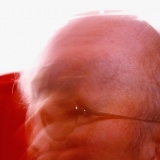
- db3348
- Master of the Lens
-
- Several : Canon digital , Nikon and Mamiya film cameras
- Followers: 70
- Posts: 1926
-
Points:
22772
Post #713560
When light is excluded from the digital processing routine – if light is not used in the processing app. / tool / procedure / device … to achieve the processed result , then it’s not photography .
lf you’re not aware , look up (e.g, Wikipedia, dictionary) the original definition of photography , and you will see the mention of the word “light” as an essential ingredient in the formation of a photograph . Apart from the backlight glaring off the screen of a computer or iPad or mobile cell phone device , how is light being applied in using a Photoshop (or any digital editing app for that matter) , procedure or tool ? A more suitable name would be visual design , digital design , digital art .
Was light involved in your physical [digital) adjustment of those images , the physical application of a mouse or typing on the keypad ? Probably not , so technically the digitally edited , processed results are not bona fide photographs , but merely digital transformations of the captured image .
-

- TCav
- The Lounger
-
- Nikon D7200. Sony A77 II. Pentax KP.
- Followers: 84
- Posts: 1012
-
Points:
30442
Post #713567
The real question isn't "At what point is photography not photography?"
The real question is "At what point does a photograph stop being a photograph?"
The answer is: When the original photographic image is supplanted by the effects of post processing. That is, if all you're doing is altering the color and contrast, it's still a photograph. Once you start messing with content, it's not a photograph anymore.
-

- John Landolfi
- Super User
-
- Nikon D3S, D7100, Sony RX10, Canon G11, F4s, F2sb, RetinaflexIV etc, etc
- Followers: 1205
- Posts: 21605
-
Points:
40394
Post #713571
TCav wrote: Photography is the art and science of recording radiant energy.
The real question isn't "At what point is photography not photography?"
The real question is "At what point does a photograph stop being a photograph?"
The answer is: When the original photographic image is supplanted by the effects of post processing. That is, if all you're doing is altering the color and contrast, it's still a photograph. Once you start messing with content, it's not a photograph anymore.
A lot of arbitrariness in your definitions. Are you then saying that the tracks of subatomic particles in a cloud chamber are photographs? Or that the graphs of a calorimeter are? And why should altering color and contrast not constitute altering content? What do you mean by content? What do you mean by "original photographic image"? In a film camera, only what is on the negative qualifies? Because developing already changes things. In a digital image, is there such a thing as the "original"photograph, other than the raw file generated at shutter click? In which case, there is no original image, but only what the particular processing of the Raw file produces, which can hardly be called original.
-

- TCav
- The Lounger
-
- Nikon D7200. Sony A77 II. Pentax KP.
- Followers: 84
- Posts: 1012
-
Points:
30442
Post #713575
-

- John Landolfi
- Super User
-
- Nikon D3S, D7100, Sony RX10, Canon G11, F4s, F2sb, RetinaflexIV etc, etc
- Followers: 1205
- Posts: 21605
-
Points:
40394
Post #713655
-

- TCav
- The Lounger
-
- Nikon D7200. Sony A77 II. Pentax KP.
- Followers: 84
- Posts: 1012
-
Points:
30442
Post #713656
If I rearrange portions of the image in a photograph (with respect to one another), it stops being a photograph.
If I start with a Porsche 911 Carrera, remove the engine and install a small block Chevy V8, replace all the suspension components with I-beams, remove all the body panels and build a fiberglass shed on the underlying frame, at some point it has stopped being a Porsche, despite the logo on the steering wheel.
On the other hand, if I paint a Porsche 911 Carrera National School Bus Glossy Yellow, it's still a Porsche and not a school bus.
-

- John Landolfi
- Super User
-
- Nikon D3S, D7100, Sony RX10, Canon G11, F4s, F2sb, RetinaflexIV etc, etc
- Followers: 1205
- Posts: 21605
-
Points:
40394
Post #713713
-

- TCav
- The Lounger
-
- Nikon D7200. Sony A77 II. Pentax KP.
- Followers: 84
- Posts: 1012
-
Points:
30442
- Forum
- General Discussion | Introductions | Off Topic Forum
- Photography General Discussion
- At what point is photography not photography?
Latest Reviews
Nikon’s retro-looking Nikon Zfc is anything but retro. Under its classic body is a host of features and amenities that make it a worthwhile compact mirrorless camera for 2024.
The Canon EOS R50 is one of the newest R-system cameras from Canon. Is it worth your money? Find out all the details you need to know in this comprehensive review.
The Sony FE 70-200mm f/2.8 GM OSS II is Sony’s flagship mirrorless zoom lens. As such, it’s loaded with features and has a top-shelf build quality that makes it a top pick!
The Leica SL2-S is an attractive, premium mirrorless camera with photo and video specs that are sure to impress. And with the legendary Leica name, you know this camera exudes quality!
Forum Top Posters
-
1TCav 9 posts
-
2CharleyL 6 posts
-
3Razky 6 posts
-
4Randy Shaw 5 posts
-
5Matt VanDyke 4 posts
-
6Hassner 4 posts
-
7Prago 4 posts
-
8db3348 3 posts
-
9EOS_Fan 3 posts
-
10Ira Weber 3 posts
Latest Articles
Blue hour photography might not be as well known as golden hour photography, but it is every bit as good a time to create epic images of landscapes. Learn how in this quick tutorial!
Nikon’s retro-looking Nikon Zfc is anything but retro. Under its classic body is a host of features and amenities that make it a worthwhile compact mirrorless camera for 2024.
Moving from taking snapshots of your dog to creating beautiful images doesn’t have to be that difficult! Use the tips outlined in this dog photography guide, and you’ll get better results in no time.
Acrylic print photos are a beautiful way to display your favorite images. But they don’t come without some questions. Get all the answers you need about this medium in this guide!
Where do you get your landscape photography inspiration? Is it from masters like Ansel Adams? Or perhaps viewing art from other genres? We’ve got these and a few other sources for you to check out!
The Canon EOS R50 is one of the newest R-system cameras from Canon. Is it worth your money? Find out all the details you need to know in this comprehensive review.
Too often, affordable online printing companies don’t meet your expectations of what a print should look like. But there are some choices that combine affordability with superb quality!
Self-critique is an important component of your journey to improving as a photographer. Use these simple tips about critiquing your work as a means to make faster progress with your art.
















